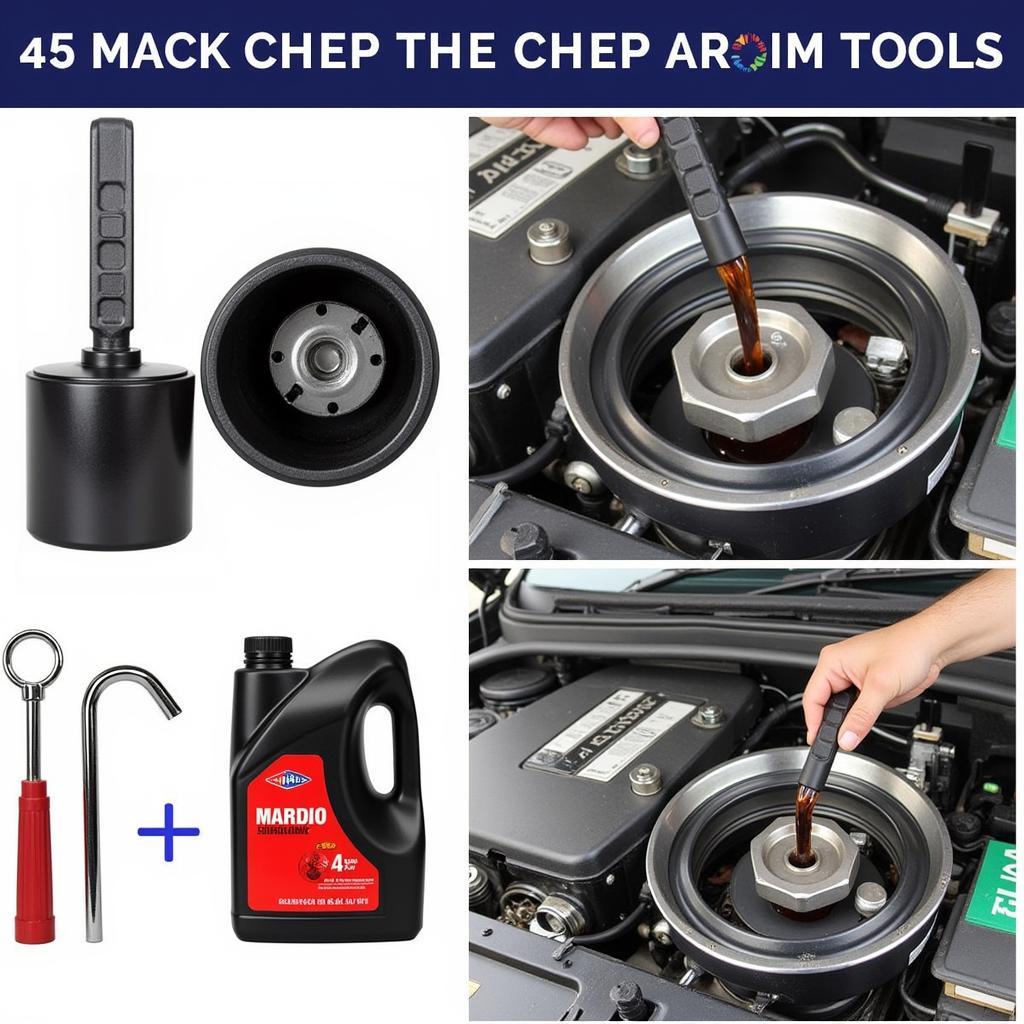Basic car maintenance guidelines are essential for every car owner. Understanding these fundamentals not only saves you money in the long run but also ensures a safer and more enjoyable driving experience. This guide provides a comprehensive overview of essential car maintenance tasks, offering practical advice and tips for both seasoned mechanics and novice car owners.
Why Basic Car Maintenance is Crucial
Regular maintenance helps prevent costly repairs by catching potential problems early. It also improves fuel efficiency, enhances safety, and maintains your car’s value. Think of it like brushing your teeth – a little daily effort prevents major issues down the line.
Engine Care: The Heart of Your Vehicle
The engine is the heart of your vehicle, and keeping it healthy is paramount. Regular oil changes are crucial. Check your owner’s manual for the recommended oil type and change intervals. Don’t forget the oil filter! It traps contaminants and keeps your engine running clean.
 Changing Engine Oil
Changing Engine Oil
Fluid Checks: More Than Just Oil
Beyond oil, several other fluids need regular checking. Coolant keeps your engine from overheating, brake fluid ensures proper braking function, and power steering fluid allows for smooth steering. Check these fluid levels regularly and top them off as needed.
Tire Maintenance: The Foundation of a Safe Ride
Proper tire maintenance is essential for safe driving. Check your tire pressure regularly and inflate them to the recommended pressure listed in your owner’s manual or on the sticker inside the driver’s side doorjamb. Rotate your tires every 5,000 to 8,000 miles to ensure even wear and extend their lifespan. Don’t forget to check the tread depth – worn tires can significantly reduce traction and increase your risk of accidents.
Brake Inspection: Stopping Power You Can Rely On
Your brakes are your lifeline on the road. Have your brakes inspected regularly, especially if you notice any squeaking, grinding, or vibrations. Brake pads and rotors wear down over time and need to be replaced. Don’t wait until you have a problem to address your brakes.
Battery Care: A Spark of Life
Your car battery provides the initial power to start your engine. Check the battery terminals for corrosion and clean them with a wire brush and baking soda solution if necessary. If your battery is more than three years old, consider having it tested to ensure it’s still holding a charge.
Basic Car Maintenance Schedule: A Simple Guide
- Every Month: Check tire pressure, fluid levels, and lights.
- Every 3,000 Miles: Change oil and oil filter.
- Every 6,000 Miles: Rotate tires, inspect brakes.
- Every 12,000 Miles: Replace air filter, cabin air filter.
- Every 24,000 Miles: Replace coolant.
“Preventive maintenance is the key to avoiding expensive repairs. A little effort now can save you a lot of headaches down the road,” says automotive expert, John Miller, ASE Certified Master Technician.
Basic Car Maintenance Guidelines: Key Takeaways
Following basic car maintenance guidelines is essential for keeping your vehicle running smoothly, safely, and efficiently. By understanding these simple yet critical steps, you can extend the life of your car, save money on repairs, and enjoy peace of mind on the road.
Remember, regular maintenance is an investment, not an expense. It’s much cheaper to maintain your car than to repair it after a major breakdown. For any assistance or further guidance on basic car maintenance guidelines, feel free to connect with us at Autotippro.
Contact us at +1 (641) 206-8880 or visit our office at 500 N St Mary’s St, San Antonio, TX 78205, United States.
“Regularly checking your tire pressure can improve your gas mileage and significantly extend the life of your tires,” adds Susan Davis, Automotive Engineer at AutoTipPro.
FAQ
-
How often should I change my oil? Consult your owner’s manual for specific recommendations, but generally, every 3,000 to 5,000 miles is a good rule of thumb.
-
What should I do if my check engine light comes on? Don’t panic! Get your car diagnosed by a qualified mechanic as soon as possible.
-
How can I improve my fuel efficiency? Proper tire inflation, regular maintenance, and avoiding aggressive driving can all improve your gas mileage.
-
Why is it important to rotate my tires? Tire rotation ensures even wear and tear, extending the lifespan of your tires.
-
What are the signs of worn brake pads? Squeaking, grinding, or vibrations when braking are all potential signs of worn brake pads.
-
How can I tell if my battery is bad? If your car is slow to start or the lights are dim, your battery may be failing.
-
What is the purpose of coolant? Coolant prevents your engine from overheating by regulating its temperature.




Leave a Reply